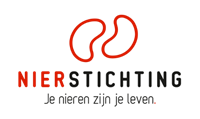About us
In 2010, the Amsterdam UMC (formerly the Academic Medical Center (AMC)) and GGD Amsterdam jointly launched a large study among residents of Amsterdam: the HELIUS health study. HELIUS stands for Healthy Life in an Urban Setting and offers a unique opportunity to improve healthcare for various population groups in Amsterdam. Almost 25,000 participants have already contributed to this study.
Together we can work on better care and better health for all.
Our goal is...
Understanding why some groups of people are healthier than others. And how this can improve.
We do this by...
Examining health data of people with different backgrounds. With the results of our research we provide advice to organizations that are developing new policies for better health for all.

Max Nieuwdorp
Scientific director and theme leader microbiome | Amsterdam UMC

Bert-Jan van den Born
Lead clinic and theme leader cardiovascular diseases | Amsterdam UMC

Arnoud Verhoeff
Lead public health and theme leader health policy | GGD Amsterdam

Henrike Galenkamp
Head research and methodology | Amsterdam UMC

Karien Stronks
Theme leader health disparities | Amsterdam UMC

Koos Zwinderman
Theme leader genetics | Amsterdam UMC

Eric Moll of Charante
Theme leader cardiovascular diseases | Amsterdam UMC

Anja Lok
Theme leader mental health | Amsterdam UMC

Janneke Heijne
Theme leader infectious diseases | GGD Amsterdam

Adriaan Bins
Theme leader cancer | Amsterdam UMC

Liffert Vogt
Theme leader kidney function | Amsterdam UMC

Mary Nicolaou
Theme leader nutrition | Amsterdam UMC

Irene van Valkengoed
Theme leader male – female differences and female-specific disorders | Amsterdam UMC

Frederieke Schaafsma
Theme leader work and health | Amsterdam UMC

Anitra Koopman
Coordinator data collection | Amsterdam UMC

Esi van der Zwan
Data manager | Amsterdam UMC
Our team
HELIUS consists of a group of inspired people who seek to make HELIUS’ mission a reality.
Grant organizations






External users



Working at HELIUS
Do you want to make an impact and contribute to reducing health disparities? Check out the open positions below.


